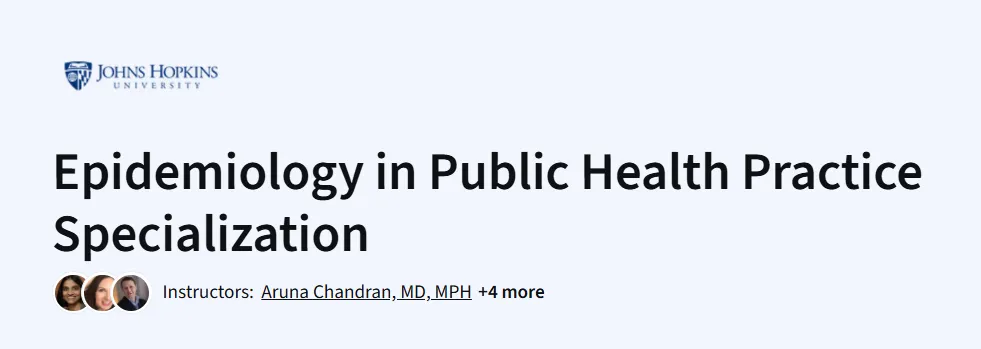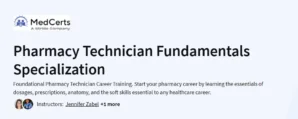What will you learn in Epidemiology in Public Health Practice Specialization Course
Get comfortable with the core tools epidemiologists use—learn to measure the health of populations and estimate disease burden.
Discover how to gather, interpret, and use public health surveillance data effectively for real-world decisions.
Understand how surveillance systems are constructed, what makes them effective, and master variations used in practice.
Explore outbreak and epidemic investigation—learn how to ask the right questions, follow disease patterns, and respond using real case studies.
Program Overview
Course 1: Essential Epidemiologic Tools for Public Health Practice
⌛ ~4 hours
Topics: Basics of public health and epidemiology. Measure disease burden (counts, rates, proportions). Visualize risk factors. Map health data.
Hands-on: Watch videos, read brief texts, complete calculations and mapping exercises.
Course 2: Data and Health Indicators in Public Health Practice
⌛ ~6 hours
Topics: Role of epidemiologists. Public health data systems. Calculating disease measures for interventions.
Hands-on: Analyze data from surveillance systems and compute disease burden indicators.
Course 3: Surveillance Systems: The Building Blocks
⌛ ~5.75 hours
Topics: How surveillance systems work. Objectives, data flow, attributes, and performance evaluation.
Hands-on: Explore surveillance system design and learn to assess their effectiveness.
Course 4: Surveillance Systems: Analysis, Dissemination & Special Systems
⌛ (est. ~5 hours)
Topics: Analyze surveillance data. Detect trends. Learn about syndromic surveillance and special reporting systems.
Hands-on: Interpret data trends and understand advanced surveillance approaches.
Course 5: Outbreaks and Epidemics
⌛ ~4 hours
Topics: Stages of outbreak investigation. Epidemic dynamics. Real-case studies (e.g., Ebola, opioid crisis).
Hands-on: Investigate real-world outbreaks via assignments and case studies.
Get certificate
Job Outlook
Ideal for newcomers or current professionals in public health agencies, government, or health NGOs involved in disease surveillance and outbreak management.
Great for roles like Epidemiologist, Public Health Analyst, or Outbreak Investigator, focusing on data-informed health decisions.
Builds a concrete foundation for more advanced epidemiology training or direct field application in monitoring and controlling health threats.
Specification: Epidemiology in Public Health Practice Specialization
|





